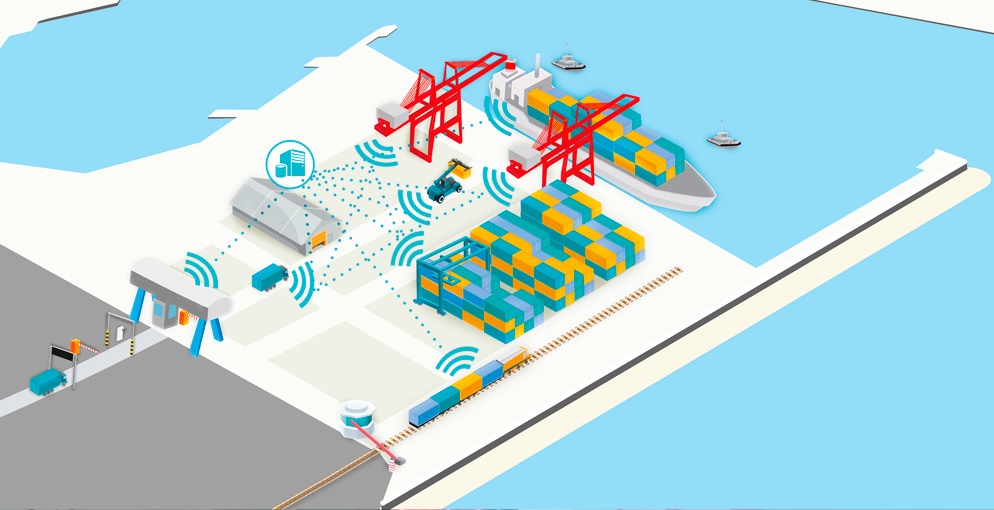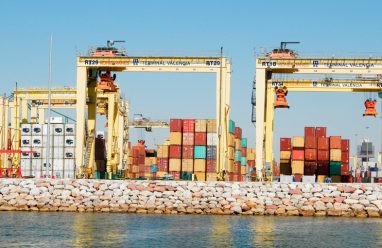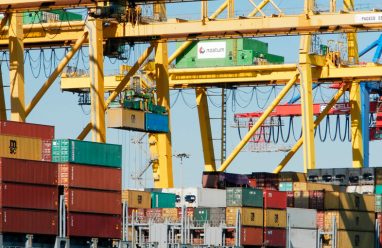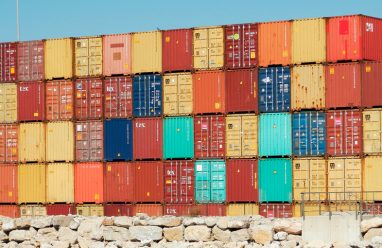The significant economic growth before the global financial crisis and the increase of cargo volumes have driven maritime ports into developing their capacities in unexpected ways. Infrastructures, services and equipment have achieved a significant development of capabilities and complexity. This evolution has provided remarkable benefits for the performance of container handling and logistics. However, operational missing links and bottlenecks remain, resulting in significant negative effects like performance inefficiencies, labour accidents, increased energy consumption as well as pollutant and Greenhouse gas emissions among other externalities.
In parallel, the development of the 4th Industrial Revolution in the last decade (Industry 4.0) has progressively deployed new concepts that, with different degree of adoption, are currently adopted in strategic sectors (automotive, heavy industries, energy, health, etc.). The adoption of concepts like Internet of Things, Big Data, Artificial Intelligence, Cloud Computing, Robotics and Automation is transforming the industry and society. The port industry is not taking advantage of the benefits and impacts derived from the digital transformation due to the low degree of implementation of such technologies and digital solutions.
The iTerminals 4.0 project comprises a study with pilot deployment in real operations at European port-container terminals, focused on digitisation of port operations and adoption of Industry 4.0 technologies within the container-handling sector. A wide range of transversal benefits is expected from the digital transformation of container port operations in terms of operational efficiency increase, safety and (cyber) security improvement, costs reduction and carbon footprint decrease. New IoT solutions and operational pilots will be developed and performed at eight strategic container terminals based on eight Core Network Ports of the Trans-European Transport Network: Antwerp, Hamburg, Bremerhaven, Wilhelmshaven, Rouen, Malta, Sines and Genoa.
Pilot activities will serve to improve, adapt and demonstrate the proposed solutions in order to test their feasibility and sustainability as well as their benefits before deploying them on a large scale. The project will test and evaluate advanced Industry 4.0 pilots applied to the operational environment of port-container terminals including the upgrade of port equipment’s sensor networks, the design of advanced big data and predictive analytics, the application of artificial intelligence as well as the provision of business intelligence models and real-time dynamic KPIs reporting.






